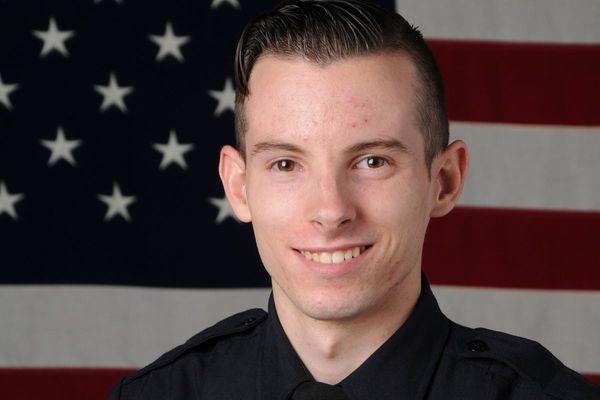
Morag Chisholm was 67 when she completed an MA in relationship therapy and began to work as a counsellor. “The wonderful thing was that at no point did anyone suggest I was too old,” she says. “I could use all the knowledge, life experience and wisdom accumulated over the years to benefit others.”
Chisholm, who works for Relationships Scotland in Dumfries and Galloway, will turn 80 in December and still has clients. As well as the degree, her inventory of “what I have done since 60” includes a divorce and a marriage, followed by bereavement when her third husband died four years ago of cancer.
Chisholm has spent most of her working life as an accountant, and there is a sense when she speaks that she is mindful of the loss column, of the inputs and outputs of her life. Her father was in the forces, and her early years were spent in Malta. When the family returned to England, Chisholm says that she felt “most definitely an outsider. I didn’t belong. That has been a constant theme.”
Even as a child in her own home, she felt that way. Relations with her mother were strained. “I was a girl. Therefore, I should like dolls and dressing up. No thank you. I wanted train engines and Meccano. I liked animals.” The words “What have we done to deserve you?” became a refrain. “I spent a lot of energy making sure she didn’t control me,” Chisholm says. “But it meant that I was quite isolated. I learned to be extremely self-reliant. I’m not saying that’s healthy. But it has kept me alive. People talk about crossroads in life. I don’t. I talk about T-junctions. Do I just give up and fail? Or do I set myself up to continue?”
Chisholm married for the first time in her mid-20s, and separated at 27, when she was in her first year of a degree in agricultural studies. Knuckling down after failing her first year is one of the T-junctions she has in mind. She met her second husband while still at university, and after they graduated they started a smallholding together in north Wales.
They had a hectare or two, and Chisholm bred goats for dairy and show. “They were my passion for about 20 years,” she says, although she bristled recently when someone referred to it as an obsession. At any rate, she had goats, and her husband had cars, and agricultural study gave Chisholm an unsentimental appreciation of life. “You are responsible for bringing these animals into the world, and you are responsible for taking them out.”
Chisholm was “never interested in having children”. An only child, she has relatives – “in the sense of people being related to me” – but, she says, “no contact” with them.
Was she drawn to therapy to help make sense of her own relationships? “I wasn’t conscious of it, but almost certainly,” she says. Her second marriage was nearing its end. On the day she finished her relationship training, her mother died.
“Thank goodness I did that therapy training. It helped me to be more objective,” she says. Although Chisholm and her second husband divorced, and she has since self-published a novel based on her experience, she was able to approach the separation with “an enormous amount of self-knowledge. I appreciated that no one person can take all the blame … I’m not an easy person to live with, because I’m very self-contained.”
When they divided their assets, Chisholm’s second husband kept their car, and she kept their boat; they had enjoyed sailing. On the lookout for crew, she met her third husband, who also sailed. “I needed an anchor,” she says. His death, after his cancer diagnosis, “was quite quick, which was a blessing”.
Chisholm believes that her “varied life” helps her counselling. She is calm, compassionate, objective and professional. “Once you’re outside the room, you get emotional,” she says.
Sometimes, a client tells her that talking has really helped. “Gradually, it’s taught me to realise that I do have a value. I have something to give, and it is appreciated,” she says. “But also – I really appreciate people thinking that. It’s a two-way process. That has helped to enrich me, and to enrich my life.”
Tell us: has your life taken a new direction after the age of 60?







